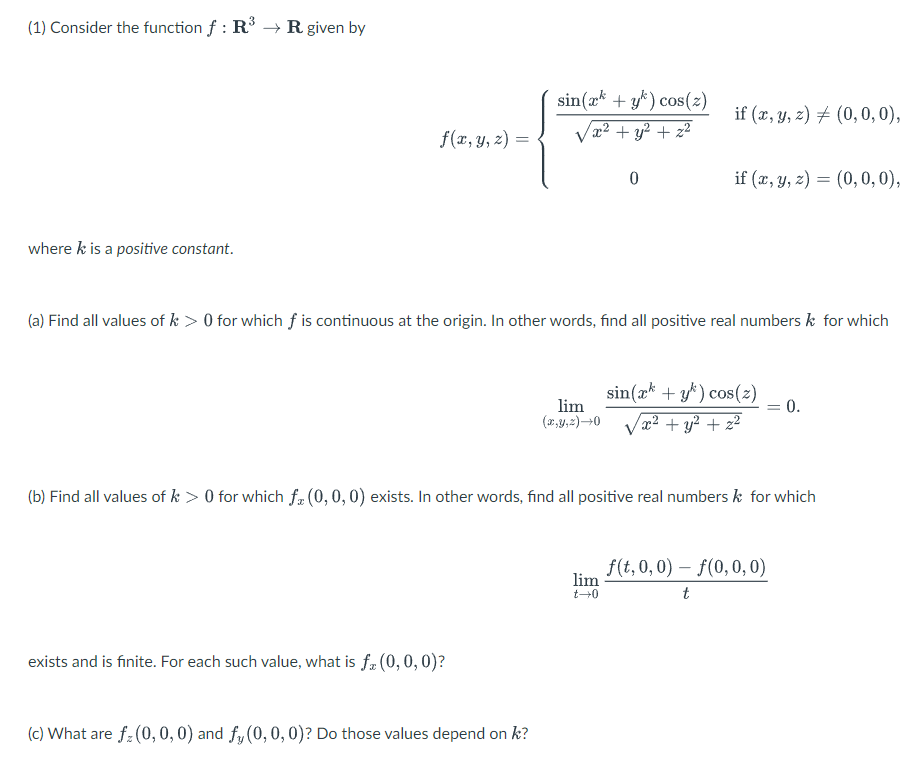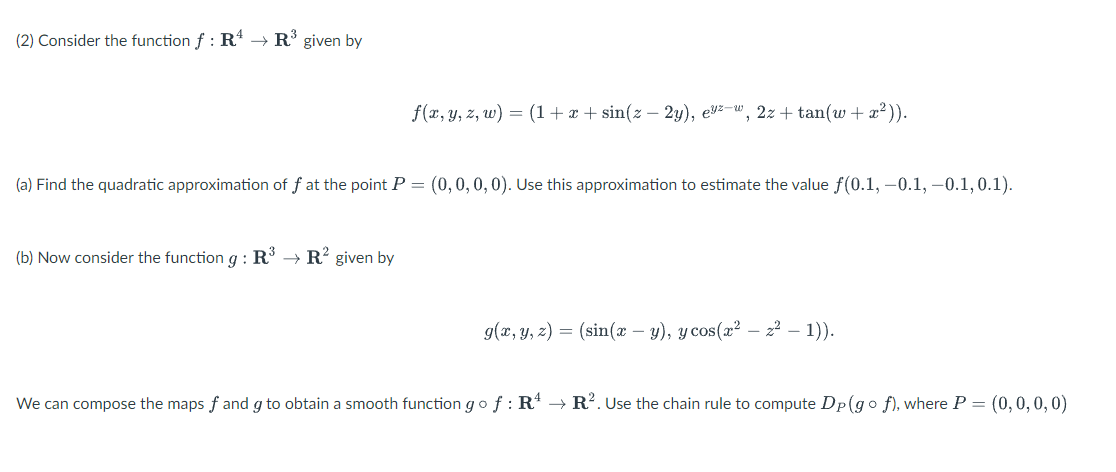Answered step by step
Verified Expert Solution
Question
1 Approved Answer
(1) Consider the function f : R -> R given by sin(a* + y*) cos(z) if (x, y, z) # (0, 0, 0), f(x, y,


Step by Step Solution
There are 3 Steps involved in it
Step: 1

Get Instant Access to Expert-Tailored Solutions
See step-by-step solutions with expert insights and AI powered tools for academic success
Step: 2

Step: 3

Ace Your Homework with AI
Get the answers you need in no time with our AI-driven, step-by-step assistance
Get Started


